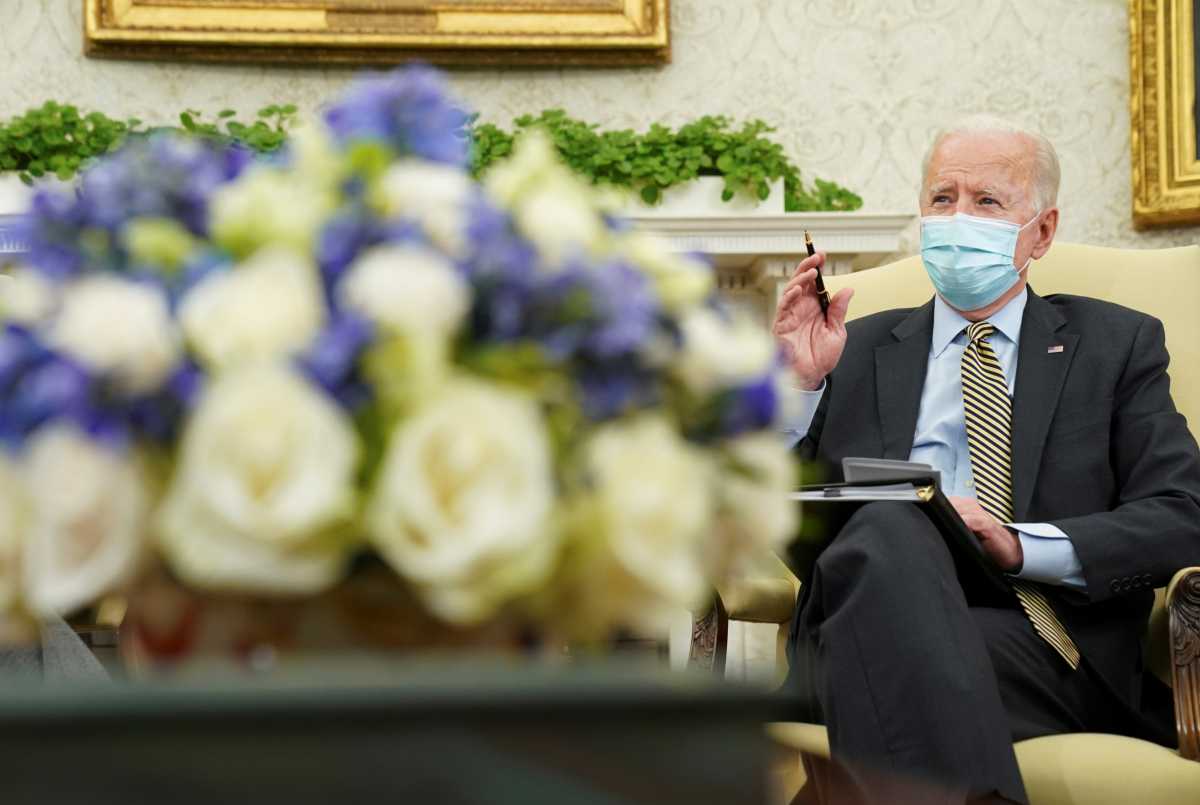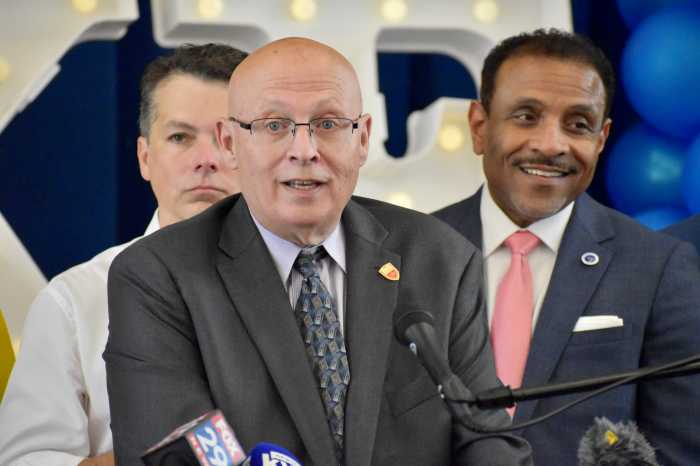By Trevor Hunnicutt
President Joe Biden asked Congress to sharply hike spending on climate change, cancer and underperforming schools, but his first budget wishlist on Friday drew howls of bipartisan concern over military spending.
The $1.5 trillion budget, reflecting an 8% increase in base funding from this year, marks a sharp contrast with the goals of Biden’s predecessor, Donald Trump.
It would spread billions of dollars more across areas ranging from public transit, poor schools, toxic site clean-ups, foreign aid and background checks on gun sales, but spend nothing on border walls.
The budget “makes things fairer,” said Treasury Secretary Janet Yellen.
Yet the proposal was greeted by bipartisan scorn over its suggested funding for the Department of Defense, roughly even on an inflation-adjusted basis at $715 billion. The administration also cut an “Overseas Contingency Operations” account that even government bureaucrats said had come to serve as a slush fund for extra military spending.
Biden’s request displeased both liberals hoping to impose cuts and hawks who want military spending to increase to deal with threats from China, Russia, Iran and North Korea – a reminder of the uphill battle Biden faces in delivering the policies he promised as a candidate beyond the COVID-19 emergency.
Five top Senate Republicans including Minority Leader Mitch McConnell issued a joint statement warning that the Biden plan sent “a terrible message” to U.S. allies and adversaries and called into question the administration’s willingness to confront China.
“We can’t afford to fail in our constitutional responsibility to provide for the common defense,” wrote lawmakers including top Republicans on critical Senate committees involved in the budget-making process.
The U.S. allocates nearly half its discretionary budget to military and defense, and has long outspent any other country.
Senator Bernie Sanders of Vermont, the chairman of the Budget Committee and a top liberal who frequently collaborates with Biden, said he was broadly supportive of the budget but said it was “time for us to take a serious look” at the Pentagon’s “waste and fraud.”
The agency failed its comprehensive audit in fiscal 2020, the third year in a row, reflecting broad system and accounting problems.
Nearly three months into a job consumed by the fight against the COVID-19 pandemic, Biden’s proposal document offered a long-awaited glimpse into the new president’s agenda.
Biden would increase spending by $14 billion across agencies to deal with the effects of greenhouse gas emissions, a shift from the Trump administration’s dismissal of climate science.
The president would spend millions on dealing with rising numbers of unaccompanied children showing up at the country’s southern border from Central America, including $861 million to invest in that region to stop asylum-seekers from coming to the United States.
But his budget would provide no funding for the construction of a border wall, the administration said, a signature Trump priority, and would increase funding for investigation of immigration agents accused of “white supremacy.”
Among the biggest proposed increases in funding is $36.5 billion for a federal aid program for public schools in poorer neighborhoods, more than double the 2021 level, and for researching deadly diseases other than the COVID-19 pandemic that has dominated his term in office so far.
Biden would spend $6.5 billion to launch a group leading targeted research into diseases from cancer to diabetes and Alzheimer’s, a program that reflects Biden’s long desire to use government spending to create breakthroughs in medical research.
Reuters































